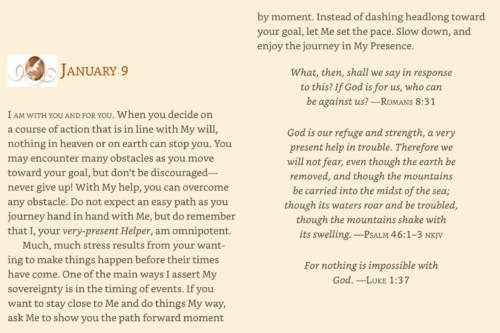Initial Conversion
Father Richard Rohr describes the confidence that characterizes the voice of the prophets:
What characterizes the prophets, and it’s still a bit of a shock to the rest of us, is an immense self-confidence that they speak for God. Where does this come from? How can they be so sure? “Thus says the Lord,” they begin with, and “Hear the word of the Lord.” They describe their call, and if we look at the conversion of Isaiah, or Jeremiah, or even Moses who was called the first of the prophets, we can see that it’s their initial transformative experience that names the rest of their insight. We see the same in Paul, where Paul’s conversion experience (Acts 9:1–19) takes place after hearing Jesus say, “Saul, Saul, why are you persecuting me?” (9:4). At first Paul defends himself, as if to say: “I wasn’t persecuting you Jesus, but these people.” Ultimately, Paul comes up with this marvelous doctrine of the mystical body of Christ: there’s an inherent communion or union between Jesus and his people. What you do to one, you do to the other. Until we understand that, we don’t understand Paul at the ground level. Everything proceeds from that.
Richard affirms that a prophetic call comes to each of us in our own unique way:
It’s the prophets’ initial theophany, their initial parting of the veil that seems to become the nature of how they henceforth see reality. I want you to see that because I’d like you to look at your own spiritual autobiography and see how you were formed, how and where you were led when God showed God’s face to you. It’s at that level that you know—and you know that you know. Your prophetic charism comes from your own conversion, a transformation into the mystery of God.
Paul knew that the only way this realignment would take place was through an ego-stripping experience that tears away our false and fabricated self and leads us to a new self (Ephesians 2:15; Galatians 6:15), where all contradictions can be absorbed and overcome. It had happened in him and now he saw his life as “handing on this reconciliation” (2 Corinthians 5:18), which was always through the coincidence of opposites called the cross.
The cross, even geometrically, is a collision of two opposing lines. Paul knew by his unwarranted election that God had not eliminated or expelled his former self, but instead had “incorporated” it into the Christ Self. He knew that he was still a mass of contradictions and inconsistencies, which is exactly what is written all over the pages of his letters. Yet his absolute confidence was not in his personal wholeness, but in Jesus, the one who had grafted him onto the Wholeness of God. This is the total basis of Paul’s joy, his love, his daring self-confidence, and his impassioned desire to have everyone else experience the same transformation and ecstasy.
Guided toward Excellence
Presbyterian author and theologian Eugene Peterson reflects upon God’s challenging questions to the prophet Jeremiah at a pivotal point in his ministry:
Every one of us needs to be stretched to live at our best, awakened out of dull moral habits, shaken out of petty and trivial busy-work. Jeremiah does that for me. And not only for me. Millions upon millions of Christians and Jews have been goaded and guided toward excellence as they have attended to God’s word spoken to and by Jeremiah.…
There is a memorable passage concerning Jeremiah’s life when, worn down by the opposition and absorbed in self-pity, he was about to capitulate to … a premature death. He was ready to abandon his unique calling in God and settle for being a Jerusalem statistic. At that critical moment he heard the reprimand: “If you have raced with men on foot, and they have wearied you, how will you compete with horses? And if in a safe land you fall down, how will you do in the jungle of the Jordan?” (Jeremiah 12:5).… Biochemist Erwin Chargaff [1905–2022] updates the questions: “What do you want to achieve? Greater riches? Cheaper chicken? A happier life, a longer life? Is it power over your neighbors that you are after? Are you only running away from your death? Or are you seeking greater wisdom, deeper piety?” [1]
Peterson imagines the conversation between God and prophet:
Life is difficult, Jeremiah. Are you going to quit at the first wave of opposition? .… Are you going to live cautiously or courageously? I called you to live at your best, to pursue righteousness, to sustain a drive toward excellence. It is easier, I know, to be neurotic. It is easier to be parasitic. It is easier to relax in the embracing arms of The Average. Easier, but not better. Easier, but not more significant. Easier, but not more fulfilling. I called you to a life of purpose far beyond what you think yourself capable of living and promised you adequate strength to fulfill your destiny. Now at the first sign of difficulty you are ready to quit. If you are fatigued by this run-of-the-mill crowd of apathetic mediocrities, what will you do when the real race starts, the race with the swift and determined horses of excellence? What is it you really want, Jeremiah, do you want to shuffle along with this crowd, or run with the horses?.…
It is unlikely, I think, that Jeremiah was spontaneous or quick in his reply to God’s question. The ecstatic ideals for a new life had been splattered with the world’s cynicism. The euphoric impetus of youthful enthusiasm no longer carried him. He weighed the options. He counted the cost. He tossed and turned in hesitation. The response when it came was not verbal but biographical. His life became his answer, “I’ll run with the horses.”
